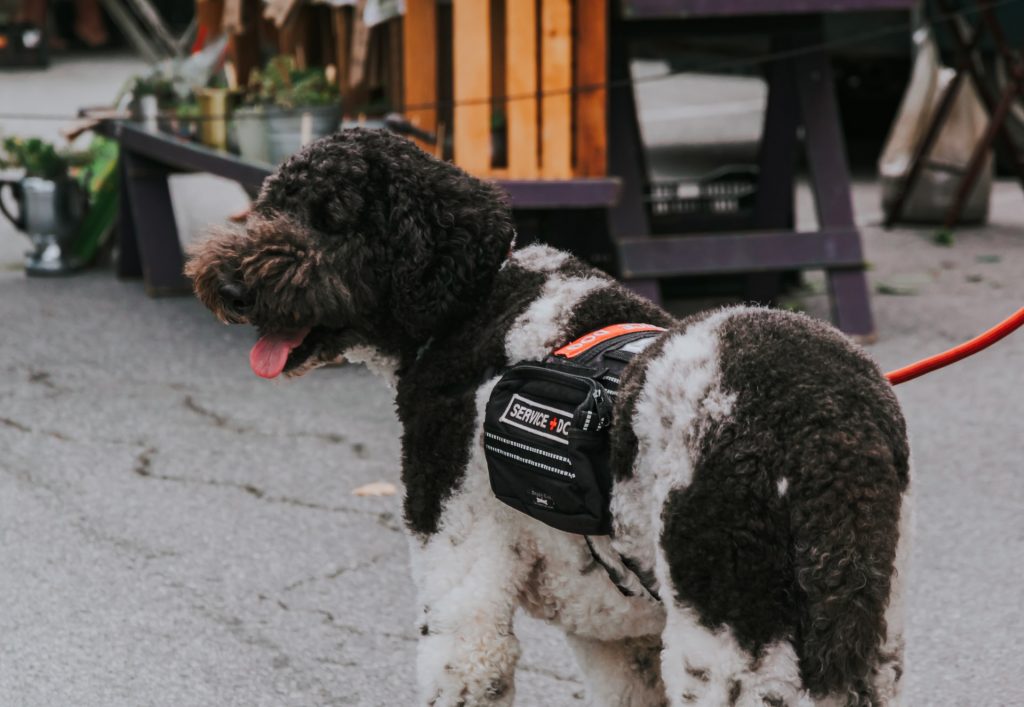Among the most complex kinds of grief is the one humans feel for their lost service animals. Service animals, in addition to providing the love and companionship of the typical pet, are highly trained to help us live our lives and do our work. Some service animals help us navigate a world that is otherwise indifferent or hostile to our disabilities; others help us perform life-saving duties in our jobs, like a dog who uses their keen sense of smell to aid a search and rescue team or pulls their owner from a rushing river. However your service animal assisted you in your life, the loss of the relationship can bring up complicated, unpredictable emotions around death, human-animal relationships, your independence and your sense of identity, all at the same time as you grieve your singular soulmate and friend.
There are several reasons why the death of a service animal tends to hit their handlers especially hard. Service animals are trained to attune to their handler’s needs; handlers spend 24/7 with their service animals which reinforces both the bond and the success of their service animal’s performance with each passing day. The relationship between a handler and a service animal is relatively unique to the relationship between pets and pet owners; even other dog lovers may not understand why your service dog death has destabilized you so thoroughly.
If you are grieving the loss of your service animal, we encourage you to:
- Give yourself time. Take off work, schedule some quiet time with loved ones who respect what you’re going through, or generally cut down any too-busy schedules so you have proper time and space to grieve. Grief is not well understood even for human beings; it’s far less well understood for service animals. You may have to carve out this time and space deliberately; friends, family and coworkers may not understand. None of this means you shouldn’t honor your own grieving process. Go at your own pace. You have just suffered an enormous loss. It will take time to integrate this knowledge and move forward with your life.
- Talk to other handlers about your loss. Do you have friends or family who have had and/or have lost service dogs? It can be cathartic to talk with people who understand the very specific bond between service animals and handlers. If you don’t have a handler in your immediate social circle, try going online to read stories written by other handlers about their experience losing their service animals, or see if you can find an internet forum where handlers discuss their shared experiences. Accessing a likemind community can remind you that you are not alone in navigating this particular kind of grief.
- Don’t give in to needless guilt. Many handlers feel guilt when a service dog dies. This is sometimes due to reasons that any pet owner feels guilt; maybe you’re concerned you euthanized your pet too early or too late, or that you should’ve euthanized your pet when you didn’t, or you shouldn’t have euthanized your pet at all. Handlers, however, also have to contend with situations like when a service animal dies in the line of duty or while doing something to help you. Handlers also often have to get a new service animal soon after their previous service animal has passed, and struggle with the idea that their beloved friend is being “replaced.” These feelings of guilt are not helpful to you and do nothing to honor your lost service animal. Take comfort in the fact that your previous service animal can never be replaced because they were special and unique. Your service animal would want you to get a new service animal quickly if it means they could continue on their life’s work of helping you live your own life more fully.


